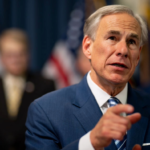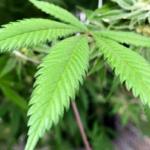The Texas Senate passed a bill that would ban the sale of any product containing THC, the psychoactive compound found in cannabis. This measure comes in response to a surge in consumable hemp products containing THC, exploiting a loophole in a 2019 law intended to foster an industrial hemp industry in Texas.
Senator Charles Perry (R), who authored both the 2019 law and the newly passed bill, Senate Bill 3, expressed concern that the original legislation had unintended consequences. The 2019 law legalized hemp plants containing less than 0.3% THC to establish a non-consumable industrial hemp market. However, the law has been exploited to create a synthetic THC market, with products far more potent than traditional cannabis.
“It’s not your granddad’s pot,” Perry said. “It is something that is marketed as safe and legal and it is anything but.”
Retailers have opened over 8,000 locations selling THC-infused products, many of which are marketed to minors by being located near schools. Lieutenant Governor Dan Patrick (R), who considers this issue one of his top priorities, emphasized the harmful impact these products are having on young people.
“It’s in our schools now,” Patrick said during the Senate session. “They do about a million a year per store, if you do the math. They aren’t just selling to veterans or seniors.”
The newly passed bill, SB 3, specifically targets both natural and synthetic forms of THC. One of the main substances being addressed is delta-8 THC, a synthesized form of THC that, while naturally occurring in small amounts, can have intoxicating effects when concentrated.
SB 3 would not affect cannabidiol (CBD) or cannabigerol (CBG), two non-intoxicating cannabinoids. However, the bill requires producers of these products to pay steep licensing and testing fees, while also imposing stricter state oversight on these businesses.
Supporters of the bill, including Sen. Perry, are particularly concerned about the high THC concentrations in some of the products now available.
“Some of these products approach 80% THC concentration,” Perry said.
In comparison, the natural cannabis plant typically contains THC levels between 5% and 15%. High levels of THC can exacerbate mental health conditions, induce psychosis, and even trigger schizophrenia in some cases.
During the Texas Senate hearing, Senator Kevin Sparks (R) spoke in favor of the bill, emphasizing the importance of protecting young people from these potent products.
“I think taking a hard line at this point to protect the children of Texas is the only way to go about this,” Sparks said. “Part of what we’re facing is a lack of understanding from our young people about how dangerous it is.”
Lt. Gov. Patrick sent a clear message to retailers selling THC products, stating, “We’re going to ban your stores.” He also called out liquor stores selling THC-infused beverages mixed with alcohol, urging the industry to “do the right thing” and stop selling these products.
“The liquor store industry needs to back up, and listen to what the people are saying, what the Legislature is saying,” Patrick added.
Lt. Gov. Patrick has been in regular communication with Governor Greg Abbott (R) and House Speaker Dustin Burrows (R) to ensure the bill’s passage, stating that they are all “on the same page.”
“We’re going to protect the people of Texas from THC,” Patrick said.
With its passage in the Texas Senate, the bill now heads to the House of Representatives, its future is uncertain. However, with strong support from state leadership, SB 3 could have a significant impact on the state’s cannabis-related laws.









